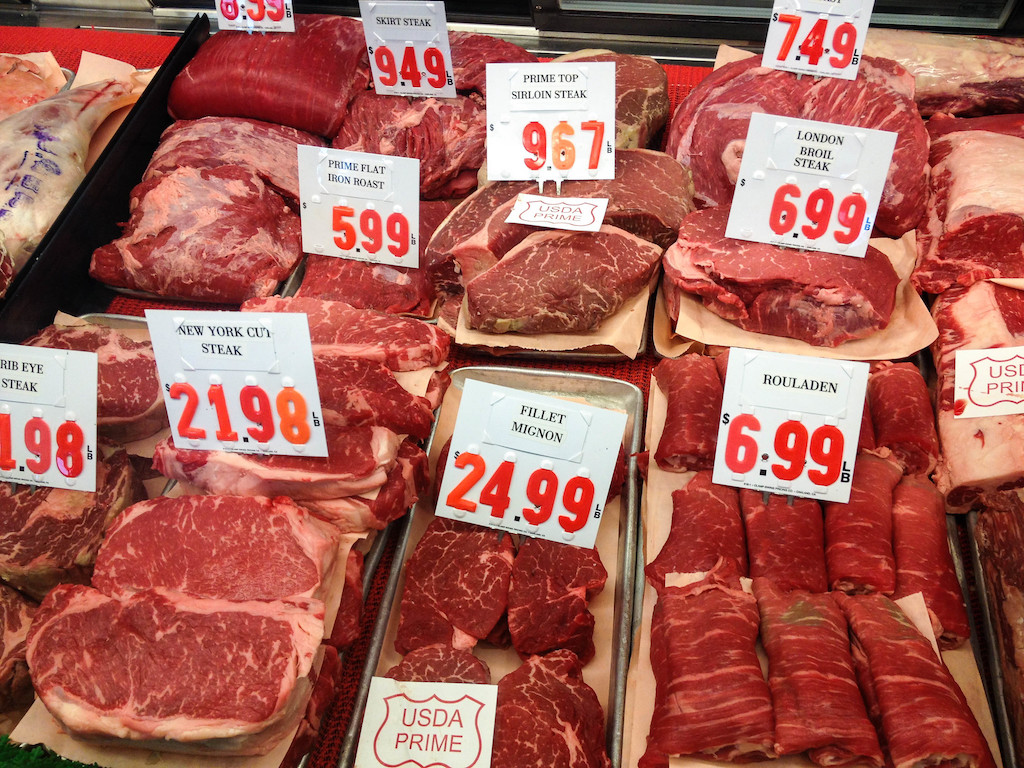3 Mins Read
The European Commission has supported the “Become a Beefatarian” campaign launched by big meat corporations, in a last-ditch effort to prop up the European beef sector against the widespread consumer shift towards plant-based, flexitarian and meat-reducing diets. The decision goes against calls from experts and scientists about the need to slash meat consumption to prevent both the climate crisis and future pandemics.
Spearheaded by the European meat corporations Provacuno in Spain and its Belgian counterpart APAQ-W, the “Become a Beefatarian” campaign is a part of a costly €4.5 million (US$5.39 million) three-year initiative to make consumers “confident” about eating red meat. Agreeing to co-finance 80% of the budget, the Commission is funding €3.6 million (US$4.36 million), which will go towards advertising across France, Germany, Belgium, Portugal and Spain over the next two years.
It represents an effort from the beef industry to continue fighting the growing consumer shift away from red meat consumption, a trend that has accelerated significantly in the wake of coronavirus-related slaughterhouse outbreaks and animal supply chain breakdown. Exposed to the dangers and vulnerabilities of the meat industry, the latest data has recorded a doubling in the number of vegans and that over 20% of Europeans are now flexitarians – a direction that experts believe will drive the growth of plant-based meat and dairy into a whopping US$8.9 billion industry by 2025.
Experts have already criticised the decision by the E.U. to back the campaign, which goes against previous recommendations made by scientists and experts about the need to transform the food system for both climate and health reasons.
In September, a Greenpeace report highlighted that the meat and dairy industry Europe produces “more emissions than cars and vans combined”. Without taking any measures to slash the unsustainable consumption of meat, analysts believe that there will be a continued 6% increase in annual emissions, which is around 39 million tonnes – equivalent to putting 8.4 million new cars on the road.
The findings came shortly after a newly set up nonprofit organisation, European Alliance for Plant-based Foods (EAPF), called on the E.U. to place plant-based foods at the centre of its 10-year plan for a more sustainable food system and the bloc’s wider sustainability ambitions outlined under the EU Green Deal. They urged lawmakers to provide more choices for consumers to diversity their diets with ethical and healthy foods, and to increase investment into novel alternative proteins.
In the U.K., top health professionals and experts have come together to recommend the introduction of a carbon tax for high-emissions foods such as meat in order to promote plant-based protein consumption, which could help remove more than a decade of emissions.
A mass shift away from meat would additionally reduce the risks of future pandemics as well as boost overall public health, said the experts, citing multiple studies demonstrating the link between plant-based diets and lower rates of stroke, heart disease, diabetes and death from all causes.
“The science is clear that the huge amounts of meat farmed and eaten in Europe has a disastrous impact on the climate and nature, and that beef contributes hugely to this,” said John Hyland, spokesperson for Greenpeace E.U. in response to the new pro-beef campaign, in conversation with The Independent.
“The E.U. should be setting targets for reducing meat in line with climate goals, producing less and producing it in a better way, and spending its money to support that. Wasting public money on an ad campaign to increase beef consumption while claiming to care about climate action doesn’t add up, and is a terrible idea.”
Lead image courtesy of Dawn Endico / Flickr.




